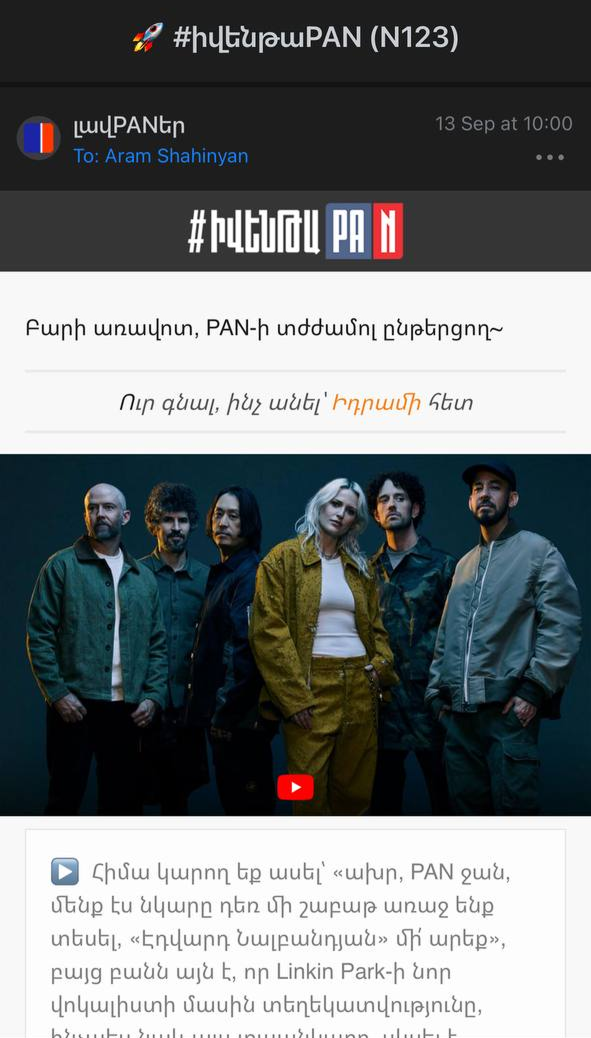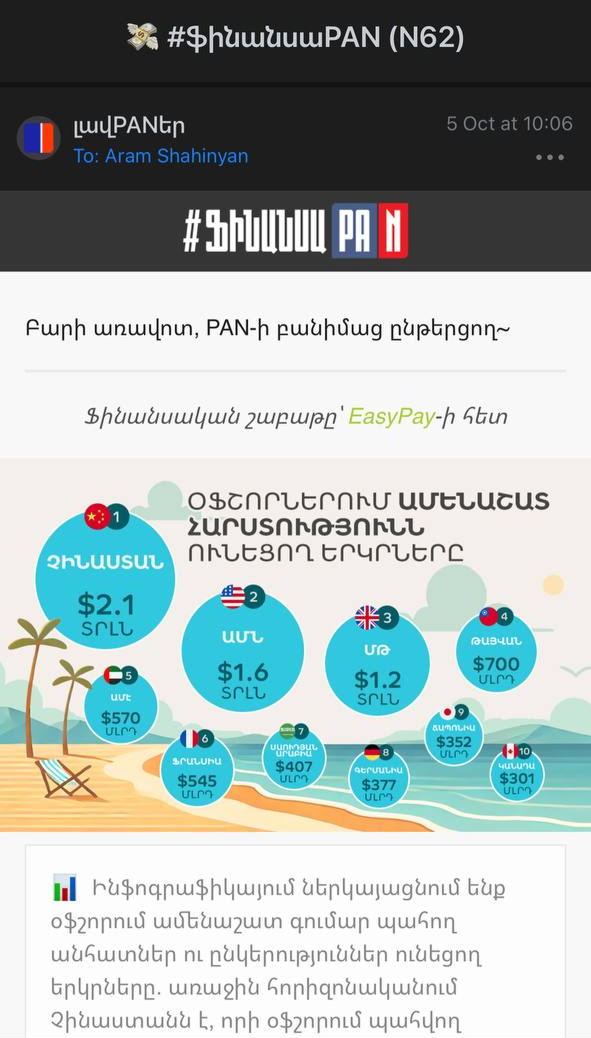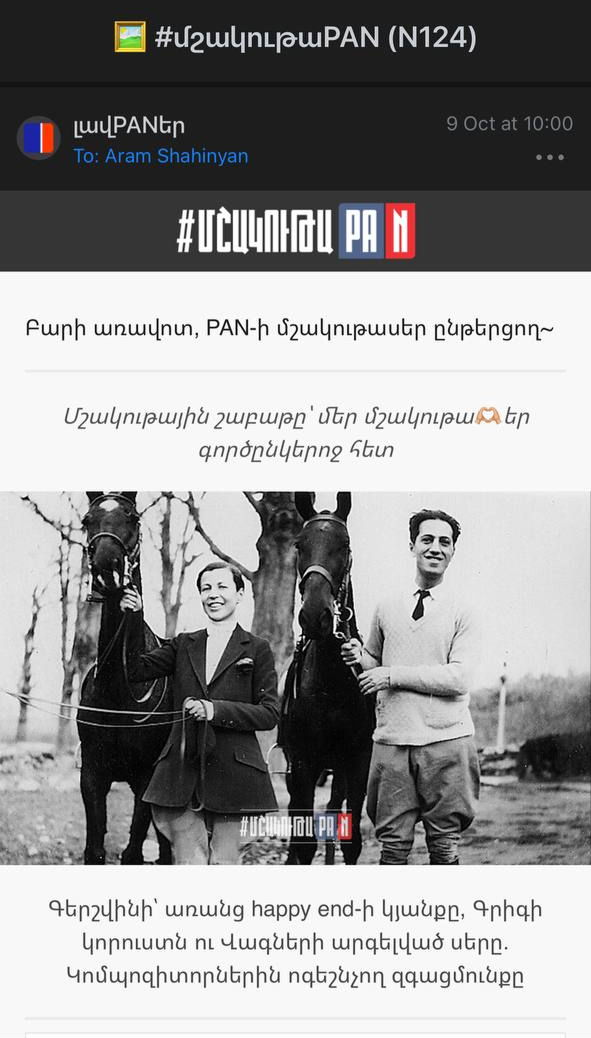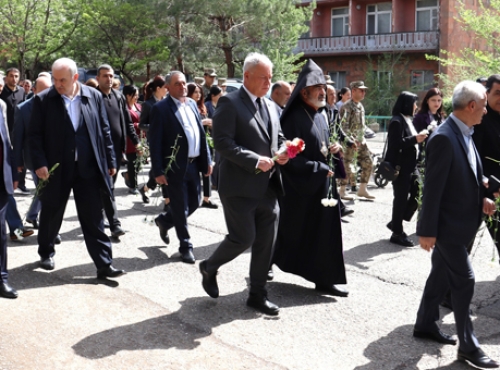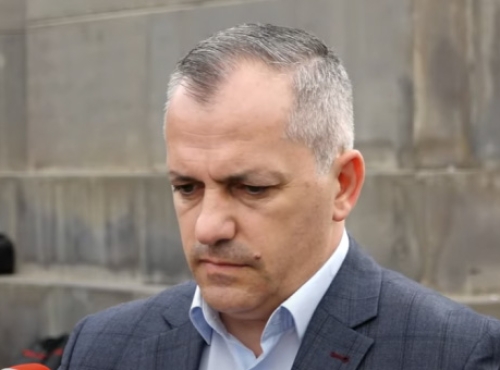According to the Georgian politician, the international financial institutions are aware of the atmosphere of the discussions of the ecological dangers of the oil pipeline and that is why its route may be changed. We shall remind that last October the Minister of Environment of Georgia Nino Chkhobadze said that the government and the president underwent a serious pressure during the discussion of the issue on providing permission for the construction of the oil pipeline. In order to oblige the Georgian authorities to agree with the route proposed by the project operators, the official Baku stated to make blackmails. The special adviser to the U.S. President Steven Mann delivered to Eduard Shevardnadze the ultimatum of Heydar Aliyev. The latter made it understand that no sense to hope for continuation of the negotiations about the construction of the Baku-Tbilisi-Erzrum gas pipeline until all the issues connected with the route of the oil pipeline are solved. In Baku they certainly understood that the Georgian authorities connected all their hopes for overcoming the energy crisis with this gas pipeline.
Meanwhile, new information about the possible catastrophic consequences of the oil pipeline appears. The leader of the “greens”, Georgiy Gachechilidze informed that Western experts have recently decoded the photos of the places where the pipeline will be constructed made from cosmos. The conducted analysis revealed the essential possibility of big landslides in many of the sectors of the approved route. Besides, it’s evident that there is a serious threat to the ecology of the Borzhomi gorge which is famous for its health resorts and healing water. In this sense the chosen route seems to experts very unfavorable.
Georgiy Gachechiladze urged the control commission of the Georgian Parliament to study the circumstances under which the decision of giving the ecology sanction for construction of the oil pipeline through the Borzhomi gorge was adopted. The leader of the “green” party thinks that the MPs have to demand from the government to make the project operators develop an alternative route for the pipeline. Otherwise, the party will apply to the European Parliament.
The doubts of the WB are understandable. It is known that the expert groups from France, Germany, Netherlands and the USAID and the EBRD have expressed their negative assessment about the route chosen for the pipeline. They have particularly emphasized that the pipeline is supposed to pass through seismically active regions.
Besides, during the autumn session of the authorities of the International Monetary Fund and the World Bank, representatives of 64 biggest ecological organizations all over the world held in Washington mass protest actions against the construction of the oil pipeline. The leaders of those structures sent a letter to international financial institutions demanding not to provide credits for the implementation of the project. The Greenpeace, other organizations, as well as the Municipality of the cit of Bolder, Colorado, USA, suited the “Export-Import Bank of the USA” and the “Overseas Private Investment Corporation”, which have expressed readiness to participate in financing of the project.
The decision of the WB to postpone the discussion of the issue on providing credit to the “Baku-Tbilisi-Ceyhan” project can be considered as a success of the campaign started by the ecologists. The refusal of the international financial institutions to provide credits will lead to failure of the project which from the very beginning seemed doubtful. It is known that from the necessary $3 billion, the $2 billion 300 million were supposed to be attracted as credits. The negotiations with different financial institutions are proceeding. However, by now nobody has given its agreement to invest. Nobody wants to undertake the responsibility for the possible catastrophic consequences of construction of the pipeline through seismically dangerous territories.










